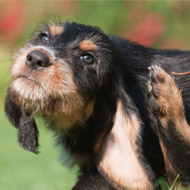
Cytopoint provides relief from atopic dermatitis
The European Commission has granted marketing authorisation to Cytopoint - the first monoclonal antibody approved in the European Union for veterinary use.
Cytopoint (lokivetmab) is used to treat the clinical signs associated with atopic dermatitis in dogs of any age weighing three kilograms or more.
Manufactured by Zoetis, the antibody targets and neutralises canine interleukin-31 (cIL-31), a key protein involved in triggering itch in dogs.
“We are honoured to be granted the first approval of a monoclonal antibody therapy for veterinary use by the European Commission,” said Dr Catherine Knupp, executive vice president and president, research and development at Zoetis.
“As the first such therapy to provide relief from atopic dermatitis, we are once again using our science and focus on our customers’ most pressing challenges to find solutions for an area of unmet need in animal health.”
Monoclonal antibodies are clones of antibodies that have been created in laboratories. They are already used in human medicine to locate blood clots, detect pregnancy and diagnose certain cancers. But this is the first time that they have been approved for use in veterinary medicine.
Cytopoint will be available early July to veterinary dermatology specialists through an early experience programme and to veterinary surgeons throughout the European Union in the Autumn. For more information visit ema.europa.eu.



 The Veterinary Medicines Directorate (VMD) is inviting applications from veterinary students to attend a one-week extramural studies (EMS) placement in July 2026.
The Veterinary Medicines Directorate (VMD) is inviting applications from veterinary students to attend a one-week extramural studies (EMS) placement in July 2026.